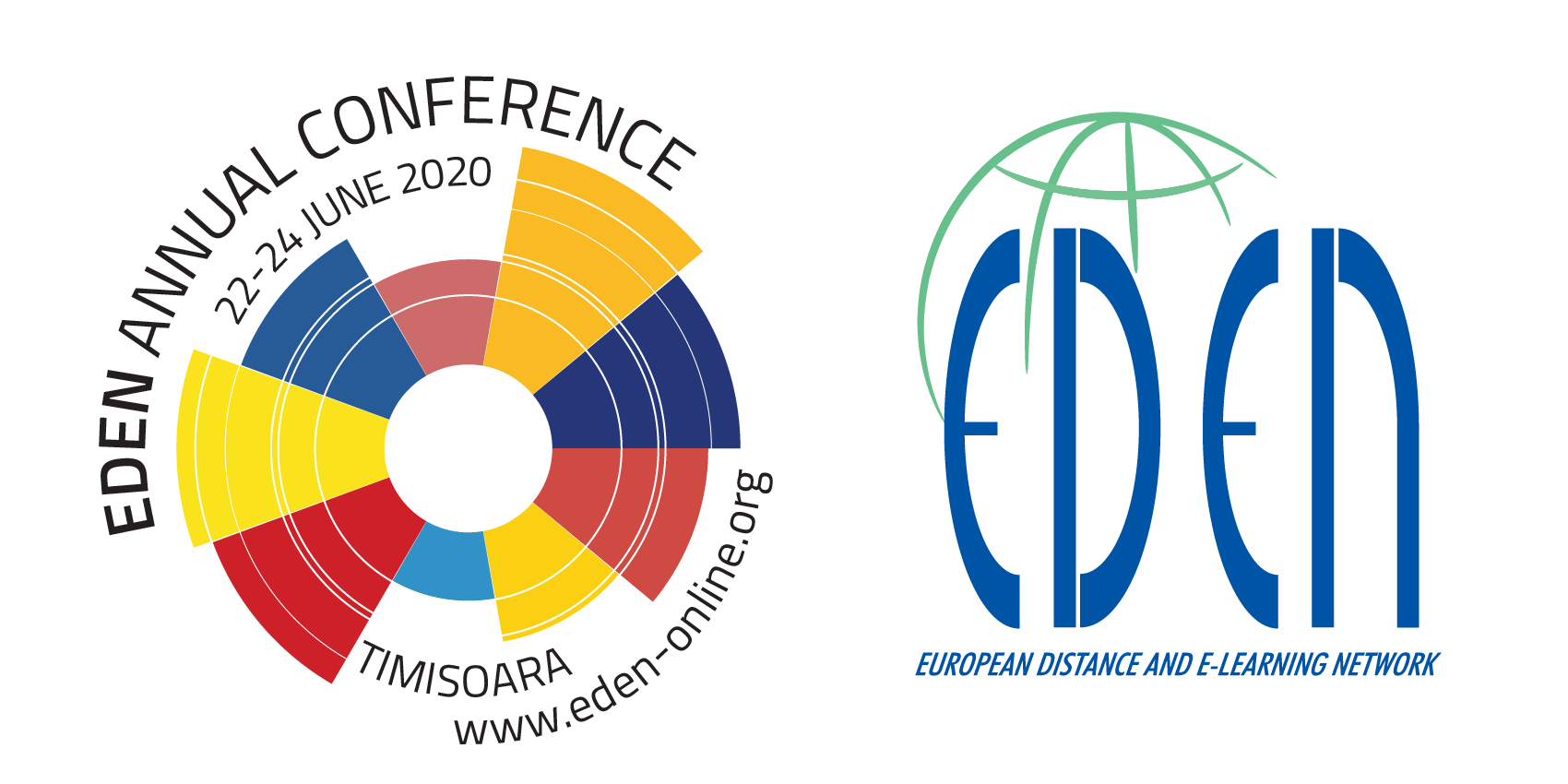EDEN 2020 Annual Conference, Politehnica University of Timisoara, Romania
Human and artificial intelligence for the society of the future
Inspiring digital education for the next STE(A)M student generation
In the end, all innovation is social innovation and technologies become real when they change social practices.
Ilkka Tuomi, EDEN Bruges Conference keynote 2019
“Education is back where it belongs – at the top of the European policy agenda” stated the European Commission. We intend that Europe will be considered a strong and allied partner to future generations, and that the EU education system must make our societies future proof.
Education is often envisioned in terms of innovation, excellence and competitiveness. But learning is also about reaching personal perfection, using a holistic approach that supports personal and professional development, learner needs and self-realization across different learning environments.
That education can be a social elevator and a vehicle to ensuring a sustainable society is acknowledged. Education delivers the social contract. Skills become obsolete when social, cultural and material contexts change. Creativity contributes to diversity and innovation, thus Europe’s cultural and creative sector is recognized as a substantial resource and driver for innovation and growth.
Digital education has proven to change learning and working practices in the society of today. The reality of lifelong learning towards sustainable life remains as urgent as ever. Intelligence, human and artificial, is in focus, and understanding students and their learning and application of new technologies in education inspires further development.
To prepare our students for this complex, challenging and exciting future we can use digital tools and methods to enhance and enable problem-based approaches to the creative process, student inquiry, dialogue and critical thinking, experiential learning, and collaboration, providing students with opportunities and skills to make connections between concepts and build productive networks.
Skills in Science, Technology, Engineering and Mathematics (STEM) represent an important part of basic literacy in today’s knowledge economy. With the inclusion of a critical component – the human being, STE(A)M Education integrates the arts – humanities, languages, dance, drama, music, visual arts, design and digital media.
Education offers incredible potential for the application of Artificial Intelligence (AI) technologies, with several significant opportunities — and challenges — that the introduction of artificial intelligence could bring, especially to higher education. Increasingly, higher education institutions, as well as adult and professional learning are being transformed by intelligent systems that are helping humans learn better and achieve their learning objectives. The breadth of areas in which AI is already inserted in education includes intelligent tutors or chatbots, personalized learning, smart teaching, learning analytics, reducing student drop-off, education administration, data privacy and ethics. A balanced relation between Artificial and Human intelligence can create trusted, flexible, personalized and inclusive digital learning eco-systems.
The EDEN 2020 Conference will focus on contemporary educational concepts, leading practice, approaches and tools which help to enhance the innovative power of cutting-edge digital solutions, and integrating the synergetic effects of arts, the human and social dimension.
PhD Symposium Timisoara 2020
The EDEN 2020 PhD Symposium Timisoara will be organized on 21 June 2020.
The Symposium, held in previous years in Barcelona (2018), Bruges (2019) and Dublin (2019), has been designed to foster the exchange of experiences and knowledge among doctoral students doing research in the area of technology enhanced online, digital, open and distance learning, providing a valuable forum for the advancement of doctoral research. The Symposium is led by a panel of international experts.
More information about EDEN PhD Symposium is here.
Timisoara European Capital of Culture 2021
The Conference will significantly benefit from the recognized cultural and digital environment that the city of Timisoara offers, as it celebrates creativity and innovation as the 2021 European Capital of Culture.
Politehnica100 – 100 years of higher education in Banat
Politehnica University of Timisoara celebrates in 2020 its first century of academic excellence. Established in November 1920, shortly after Romania’s Unification, through the Decree signed by King Ferdinand, it is the first higher education institution in West Romania, in Banat region. As Timisoara became a university city, it started growing and its attractiveness for all kinds of investments increased, but still keeping the young and innovative spirit and promoting its image of avant-garde in Romanian and European science.
Open University UK 50
During the conference, we would like to pay tribute to the flagship open university of Europe, EDEN’s founding member and birthplace, the Open University UK. The OU celebrates its 50th Anniversary and has been playing in partnership with EDEN leading role in developing the impact of the European open and distance learning conferences since 1992.
Micro-credentialing in European Higher Education
Aligned to the themes of the conference, the final symposium of the Erasmus+ MicroHE initiative will focus on Micro-credentialing. In order to make micro-credentials a pillar of university service, the project has been working on the impact of modularisation, including the first European survey on micro-credentials in HE, proposing a meta-data standard and launching an online clearinghouse to facilitate recognition, transfer and portability of micro-credentials in Europe.
DigitalCulture
To highlight the digital culture aspect of the conference a special section will be dedicated to digital education for the creative industries, as part of the Erasmus+ DigiCulture project for improving the digital competences and social inclusion of adults in creative industries. The ‘Digital Skills for Creative Industries and Culture Courses’, as a blended learning and online courses (MOOCs) and the achievement of Open Badges for Digital Competences indicates the important role the digital education has for the creative industries.
More information on Call for Contributions, Conference Tracks, Important dates, Author Guidelines
